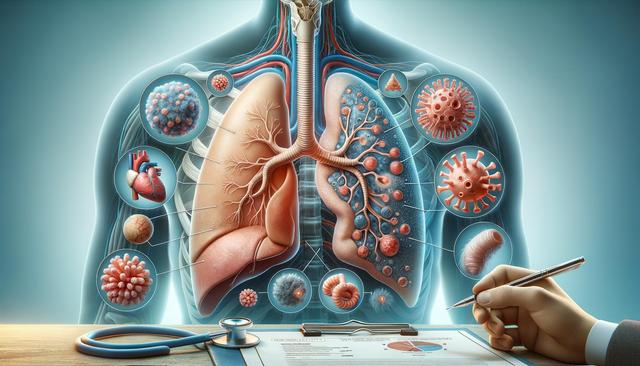What Is COPD?
Chronic Obstructive Pulmonary Disease, commonly known as COPD, refers to a group of progressive lung diseases that obstruct airflow and make breathing difficult. The two primary conditions under the COPD umbrella are chronic bronchitis and emphysema. Both conditions damage the lungs and contribute to airflow limitation. COPD is most commonly caused by long-term exposure to irritants such as cigarette smoke, air pollution, chemical fumes, or dust. People with COPD often experience symptoms such as chronic cough, shortness of breath, wheezing, and increased mucus production.
Unlike some other respiratory conditions, COPD is not fully reversible, but it is manageable. Early diagnosis and lifestyle changes can help slow its progression. Spirometry, a simple breathing test, is the most common method used to diagnose COPD. It measures how much air a person can breathe in and out and how quickly they can do so.
The Four Stages of COPD
COPD is classified into four stages based on the severity of symptoms and the results of lung function tests. These stages help healthcare providers determine the appropriate treatment and management strategies for each patient.
- Stage 1 – Mild COPD: Lung function is only slightly reduced. Symptoms may be minimal or mistaken for normal aging. A chronic cough with mucus may be present.
- Stage 2 – Moderate COPD: This stage includes worsening symptoms, such as increased breathlessness during physical activity and more frequent coughing.
- Stage 3 – Severe COPD: Lung function continues to decline, and symptoms become more noticeable. Daily activities may become difficult due to shortness of breath.
- Stage 4 – Very Severe COPD: Also known as end-stage COPD, this stage involves extreme shortness of breath even at rest, and a significantly reduced quality of life. Complications such as respiratory failure may occur.
Each stage has specific treatment approaches, and monitoring disease progression is essential for adjusting care plans effectively.
Symptoms and Complications by Stage
As COPD progresses, the symptoms tend to worsen and affect various aspects of daily living. Recognizing how symptoms evolve through each stage can help patients and caregivers understand and prepare for the challenges ahead.
In early stages, symptoms might be subtle:
- Occasional shortness of breath
- Chronic but mild cough
- Slight fatigue
In moderate to severe stages, symptoms become more disruptive:
- Increased breathlessness, especially during exertion
- Frequent respiratory infections
- Difficulty sleeping or maintaining physical activity
- Unintentional weight loss
In very severe COPD, complications may include:
- Respiratory failure
- Heart problems, such as cor pulmonale
- Frequent hospitalizations
Understanding these symptoms and complications can guide timely medical interventions and improve quality of life.
Treatment Options Across COPD Stages
Treatment for COPD varies depending on the stage and the severity of symptoms. While there is no cure, there are several strategies that can help manage the disease and improve daily functioning. Treatment plans often include a combination of medication, lifestyle adjustments, and sometimes surgical interventions.
Common treatment options include:
- Inhalers and bronchodilators to open airways
- Steroids to reduce inflammation
- Oxygen therapy for advanced stages
- Pulmonary rehabilitation programs
- Vaccinations to prevent respiratory infections
In early stages, lifestyle changes such as quitting smoking, avoiding air pollutants, and maintaining physical activity can make a significant difference. As the disease progresses, patients may require more intensive treatments and support. In very advanced stages, surgeries like lung volume reduction or even lung transplantation may be considered in select cases.
Living With and Managing COPD
Living with COPD requires a proactive approach to daily health and wellness. Patients are encouraged to work closely with healthcare providers to develop a personalized management plan that addresses their unique needs. Self-care and regular monitoring are crucial elements of effective COPD management.
Key management strategies include:
- Regular use of prescribed medications
- Attending pulmonary rehabilitation sessions
- Monitoring symptoms and recognizing signs of exacerbation
- Maintaining a balanced diet and healthy weight
- Staying physically active within personal limits
Support from family, friends, and support groups can also play a vital role in managing the emotional and psychological effects of the disease. As COPD can be a progressive condition, having access to accurate information and support resources is essential for maintaining the best possible quality of life.












